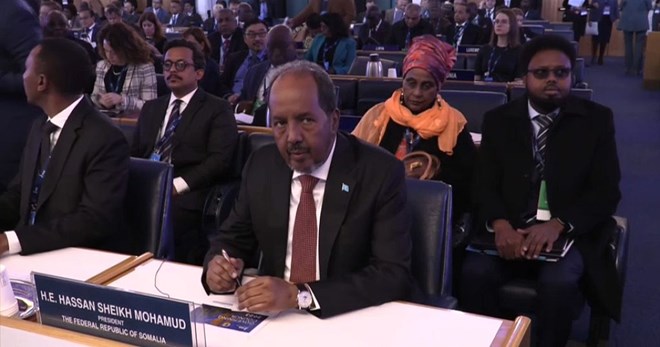
Wednesday February 15, 2023

As Somalia continues to experience a historic drought, pushing millions of Somalians into acute food insecurity the International Fund for Agricultural Development (IFAD), announced today (14 Feb) that it will substantially strengthen its support to Somalia and resume its direct investments after loan arrears resulted in a three-decade-long suspension. Speaking during IFAD’s 46th session of the Governing Council, president Alvaro Lario said, “this comes at a critical time when Somalia is facing critical challenges to its food security.
The President of Somalia, Hassan Sheikh Mohamud, welcomed the re-engagement but he also called on on governments not just to invest in immediate aid for countries like Somalia.
According to the Integrated Phase Classification, 5.6 million Somalians are currently experiencing high levels of acute food insecurity, including 214,000 people considered in a catastrophe situation due to an unprecedented drought, not seen in decades.
Projections show that as many as 8.3 million Somalians could face high levels of acute food insecurity between April and June 2023. This includes preventing the loss of life of approximately 6.7 million of the most vulnerable people.
Despite the arrears and the suspension of loans, IFAD has been actively mobilizing grants from donors to Somalia and channelling resources for rural development projects in the country. Since the early 1990's, IFAD has channelled about US$40 million to Somalia. There are two ongoing projects at the moment.
A project in Puntland, for example, helps pastoralists and agropastoralists rehabilitate irrigation systems, improve livestock health, use drip irrigation, restore degraded rangelands and use solar energy.
.IFAD’s renewed direct investments are now made possible thanks to Belgium, Germany, Italy and Sweden which supported Somalia in clearing its arrears to IFAD. The arrears prevented Somalia from benefiting from IFAD’s highly concessional loans and grants since 1991, when the civil war started in Somalia.
Additional sources • AP